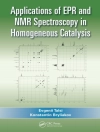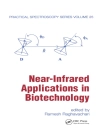Provides the tools needed to analyze and solve acid drainage problems
Featuring contributions from leading experts in science and engineering, this book explores the complex biogeochemistry of acid mine drainage, rock drainage, and acid sulfate soils. It describes how to predict, prevent, and remediate the environmental impact of acid drainage and the oxidation of sulfides, offering the latest sampling and analytical methods. Moreover, readers will discover new approaches for recovering valuable resources from acid mine drainage, including bioleaching.
Acid Mine Drainage, Rock Drainage, and Acid Sulfate Soils reviews the most current findings in the field, offering new insights into the underlying causes as well as new tools to minimize the harm of acid drainage:
- Part I: Causes of Acid Mine Drainage, Rock Drainage and Sulfate Soils focuses on the biogeochemistry of acid drainage in different environments.
- Part II: Assessment of Acid Mine Drainage, Rock Drainage and Sulfate Soils covers stream characterization, aquatic and biological sampling, evaluation of aquatic resources, and some unusual aspects of sulfide oxidation.
- Part III: Prediction and Prevention of Acid Drainage discusses acid-base accounting, kinetic testing, block modeling, petrology, and mineralogy studies. It also explains relevant policy and regulations.
- Part IV: Remediation of Acid Drainage, Rock Drainage and Sulfate Soils examines both passive and active cleanup methods to remediate acid drainage.
Case studies from a variety of geologic settings highlight various approaches to analyzing and solving acid drainage problems. Replete with helpful appendices and an extensive list of web resources, Acid Mine Drainage, Rock Drainage, and Acid Sulfate Soils is recommended for mining engineers and scientists, regulatory officials, environmental scientists, land developers, and students.
Spis treści
Preface ix
Contributors xiii
Part I Causes Of Acid Mine Drainage, Rock Drainage, and Sulfate Soils
1 Acid Drainage and Sulfide Oxidation: Introduction 3
James A. Jacobs and Stephen M. Testa
2 Vitriols in Antiquity 9
Stephen M. Testa
3 Biogeochemistry of Acid Drainage 15
James A. Jacobs and David B. Vance
4 Trace Element Geochemistry and Acid Rock Drainage 53
Bruce W. Downing and John Gravel
5 The Microbiology of Acid Drainage 61
Bruce W. Downing
6 Natural Acid Rock Generation, Drainage, and Metal Leaching: Impact on Exploration, Mining, and Reclamation 67
Bruce W. Downing
7 The Sulfur Cycle: Acid Drainage and Beyond 81
David B. Vance
Part II Assessment of Acid Mine Drainage, Rock Drainage, and Sulfate Soils
8 Sampling Strategies for Acid Drainage Studies 99
James A. Jacobs
9 Stream Characterization for Acid Mine Drainage 105
Jeff Skousen and James A. Jacobs
10 Overview of Soil and Groundwater Sampling Methods for Acid Drainage Studies 119
James A. Jacobs
11 Acid Drainage Sampling Design and Sample Preparation 123
Bruce W. Downing
12 Acid Drainage and Aquatic Resources 131
Dennis R. Neuman, Stuart R. Jennings, and James A. Jacobs
13 Metals Associated with Acid Rock Drainage and Their Effect on Fish Health and Ecosystems 139
Dennis R. Neuman, Peter J. Brown, and Stuart R. Jennings
14 Biological Sampling and Inventory Process 171
Jeff Skousen, Craig Mains, and James A. Jacobs
15 Acid Rock Drainage as Related to Permafrost, Glaciers, and Climate Change 185
Bruce W. Downing and James A. Jacobs
16 Acid Sulfate Soils 191
James A. Jacobs
17 Prevention of Arsenic Mobilization Related to Sulfide Oxidation in Aquifers 197
Mark S. Pearce, Mike Waldron, and James A. Jacobs
Part III Prediction and Prevention of Acid Mine Drainage, Rock Drainage, and Sulfate Soils
18 Overview of Acid Drainage Prediction and Prevention 207
Stuart R. Jennings and James A. Jacobs
19 Acid–Base Accounting Associated with Acid Rock Drainage 217
Bruce W. Downing
20 Acid–Base Accounting Test Procedures 229
Bruce W. Downing
21 Kinetic Testing Procedures 253
Bruce W. Downing
22 Kinetic Testing Data Interpretation 261
Bruce W. Downing
23 Block Modeling and Acid Rock Drainage Prediction 267
Bruce W. Downing and Gary Giroux
24 Lithogeochemical Methods for Acid Rock Drainage Prediction 273
Bruce W. Downing and Hans E. Madeisky
25 Predicting Acid Rock Drainage Based on Mineralogy and Petrology Studies 285
Shannon Shaw and Bruce W. Downing
26 Management and Analysis of Acid Drainage Data 293
Bruce W. Downing
27 Acid Generation and Drainage Workshop: Example Calculations and Solved Problems 305
Jeff Skousen, Paul Ziemkiewicz, and James A. Jacobs
28 Mine Reclamation Policy and Regulations of Selected Jurisdictions 319
James A. Jacobs and Stephen M. Testa
Part IV Remediation of Acid Mine Drainage, Rock Drainage, and Sulfate Soils
29 Overview of Acid Mine Drainage Treatment with Chemicals 327
Jeff Skousen
30 Passive Treatment of Acid Mine Drainage 339
Carl Zipper and Jeff Skousen
31 The Iron Mountain Mine in Shasta County, California 355
James A. Jacobs and Stephen M. Testa
32 Overview of Resources from Acid Drainage and Postmining Opportunities 361
James A. Jacobs
33 Systematic Land Reclamation Assessment at Acid Mine Drainage Sites 377
Pamela S. Blicker, Dennis R. Neuman, Stuart R. Jennings, and James A. Jacobs
34 Resource Recovery 387
Stephen M. Testa
35 Case Studies for Acid Mine Drainage 407
James A. Jacobs
36 Sustainable Aquaculture Using Treated and Untreated Mine Water from Coal Mines 419
Kenneth J. Semmens and James A. Jacobs
Part V Appendixes
Appendix A Web Resources for Acid Drainage Issues 433
Appendix B Acronyms Used in Acid Drainage Literature 435
Appendix C Glossary of Acid Drainage and Mining Technical Terms 442
Appendix D Chemical Equilibrium Diagrams 447
Appendix E Soil and Groundwater Sampling Methods for Acid Drainage Studies 450
Appendix F Conversion Factors and Datums 459
Appendix G Nomenclature and Physical Characteristics of Pyrite 461
Appendix H Summary of U.S. EPA Method 1627 Kinetic Test Procedure for the Prediction of Mine Drainage Quality 463
Appendix I Acid Mine Drainage Remediation Decision Tree 475
Index 481
O autorze
JAMES A. JACOBS is Chief Hydrogeologist of Clearwater Group in Point Richmond, California. He is a Fulbright Senior Scholar, having won four awards between 2003 and 2012. He is coauthor of three other environmental books and has served as an expert witness in a variety of resource and environmental contamination cases. He is an instructor for the University of California, Berkeley Extension Program, teaching a class on sustainable remediation methods for soil and water.
JAY H. LEHR received a degree in geological engineering from Princeton and a Ph D in groundwater hydrology from the University of Arizona. He is the coauthor of 30 books relating to environmental science and water supply. He edited the journal Groundwater for 25 years. He is currently the Science Director of the Heartland Institute, a free market think tank in Chicago, Illinois.
STEPHEN M. TESTA is currently the Executive Officer of the California State Mining and Geology Board and past president of the American Geosciences Institute, American Institute of Professional Geologists, American Association of Petroleum Geologists (Energy Minerals Division), and Los Angeles Basin Geological Society. Mr. Testa was a consultant for over 30 years and served as an instructor at the University of Southern California and California State University, Fullerton.












